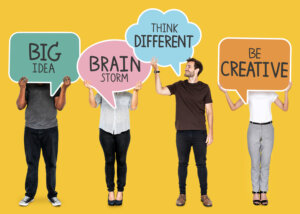During my career, I have been given a few nuggets of wisdom from people with whom I have made contact. Upon truly understanding their meaning, those words shaped a paradigm shift in my thinking that transformed the way in which I did my work or lived my life. Other pieces of wisdom I heard simply reaffirmed what I already knew, but perhaps provided a unique way in which to describe or communicate the concept. One of those concepts seems to be rarer today than when my career started and I thought I would share it with you.
During my last year of undergraduate work, a guest speaker came to speak to my leadership class. Her message was inspiring and spoke to the good that can be done when only one person takes a stand to make a difference. Upon concluding her talk, she suggested that we always remember who we represent. In our daily interactions with the world around us, we represent the groups to which belong. Those groups include our family, our educational institutions, our religious organizations, our communities, our workplaces, and yes even our sports teams. Whether or not we want the responsibility, our actions send a message to those with whom we interact about the people that make up our group.
What does your message send about you, your family, or even the field of HR? If you are in HR, you most likely understand the negative perceptions that may exist about our ability to really contribute to the business or make a financial impact. But what are you doing today to change those? How are you leading change in your organizations? How are you modeling the core values you represent?
Think about the following:
. You are a recruiter for a company. In your personal time, you spend hours to complaining to everyone who will listen about how bad your company is. (This goes beyond the very tight inner circle of people with whom you have developed a deep relationship of trust and may even include those postings we have all heard about on all those social networking sites.) When you come to work, you spend hours wondering why you can’t get your network to send you any referrals.
. You completed your degree and are very quick to point out to others this new credential you earned. (Go ahead; you deserve to brag a little). But then at every opportunity, you bash the school and the curriculum. And talk about how it was a huge waste of time. Or you use your 10 years of experience working at a company as a credential on your resume, but during an interview with a potential employer, you spend 15 minutes bashing the company and everything they did wrong.
. You volunteer with a charity. You are put in charge of a project that requires the recruitment of volunteers. You schedule a meeting with those who may be interested in volunteering. While you are waiting to start the meeting, your friend who came to help out walks over and you spend ten minutes venting to her about how frustrating it is working with the leaders of the organization.
On the days when emotions take over and I start to resemble the examples above, I check myself. I take a moment and I think about who I am representing. The next step is to ask, “What can I do to make it better?”
Where will you start?
—
For more resources, See the Human Resources library.
—
 Sections of this topic
Sections of this topic
















